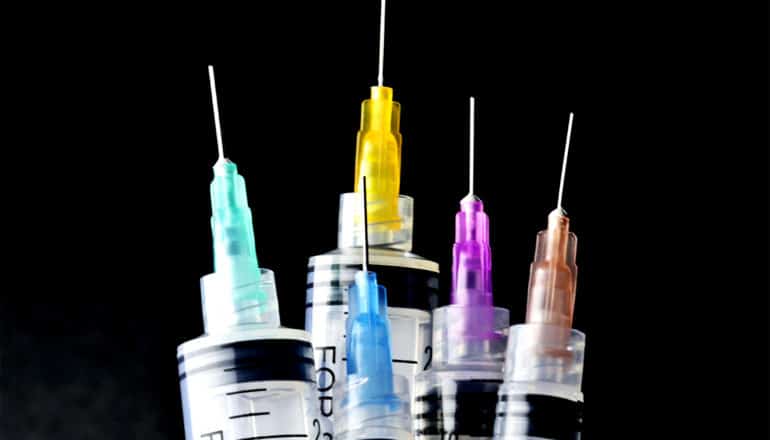
When a COVID-19 vaccine becomes available, 66% of adults say they will likely get it, and have their children vaccinated too, according to a new nationwide survey.
The survey indicates that women, African Americans, and Republicans are more hesitant about getting a COVID-19 vaccine.
The likelihood of receiving the vaccination is below 60% in 11 states: Alabama, Arkansas, Louisiana, Mississippi, Missouri, South Dakota, Ohio, Oklahoma, South Dakota, West Virginia, and Wyoming. It is greater than 70% in 11 other states: Arizona, California, Iowa, Maryland, Massachusetts, Minnesota, North Dakota, New York, Rhode Island, Utah, and Washington, as well as in the District of Columbia.
More outreach efforts will be necessary for these groups once a vaccine is available, the researchers say.
“Health experts expect that a COVID-19 vaccine will be ready for the public in the first half of next year,” says coauthor Katherine Ognyanova, an assistant professor of communication at Rutgers University–New Brunswick’s School of Communication and Information.
“But will the public be ready for a vaccine? We may need to reach 70-90% immunity among the population to get the disease fully under control and have herd protection for those vulnerable.”
The survey also shows that only 58% of those without a high school diploma say they plan to get a COVID-19 vaccine, compared to 78% of those with at least a bachelor’s degree. Of people who earn less than $25,000, 59% anticipate vaccinating, compared to 78% of those who earn more than $100,000.
Young adults (18-24) and older adults (65+) are more likely to say they will likely get the vaccine (71 and 73% respectively) than those aged 25-44 and 45-64 (63 and 64%).
Party affiliation also plays a role in how likely someone will get the vaccine: 62% of Republicans say they would likely seek vaccination compared to 75% of Democrats.
For those who said they are likely to get vaccinated, 62% identify the need to protect themselves and their families as a motivation, 45% cite protecting people in their community, and 59% identify medical professionals’ recommendations as a factor.
For those less likely to get the vaccine, 33% prioritize protecting themselves and their families, 18% protecting the community, and 26% identify a medical professional’s recommendation as an important consideration.
“In designing public health strategies to increase vaccine acceptance, the desire to protect others or follow medical advice may not be effective motivations for a majority of those not planning to seek vaccination,” Ognyanova says.
The COVID-19 Consortium for Understanding the Public’s Policy Preferences Across States, a joint project of Rutgers University, Northeastern University, Harvard University, and Northwestern University, conducted the study, polling 19,058 people in all 50 states and the District of Columbia from July 10 to July 26.
Source: Rutgers University
The post Survey: 66% of US adults say they’ll get a COVID-19 vaccine appeared first on Futurity.
from Futurity https://ift.tt/3gzr7xT
No comments:
Post a Comment